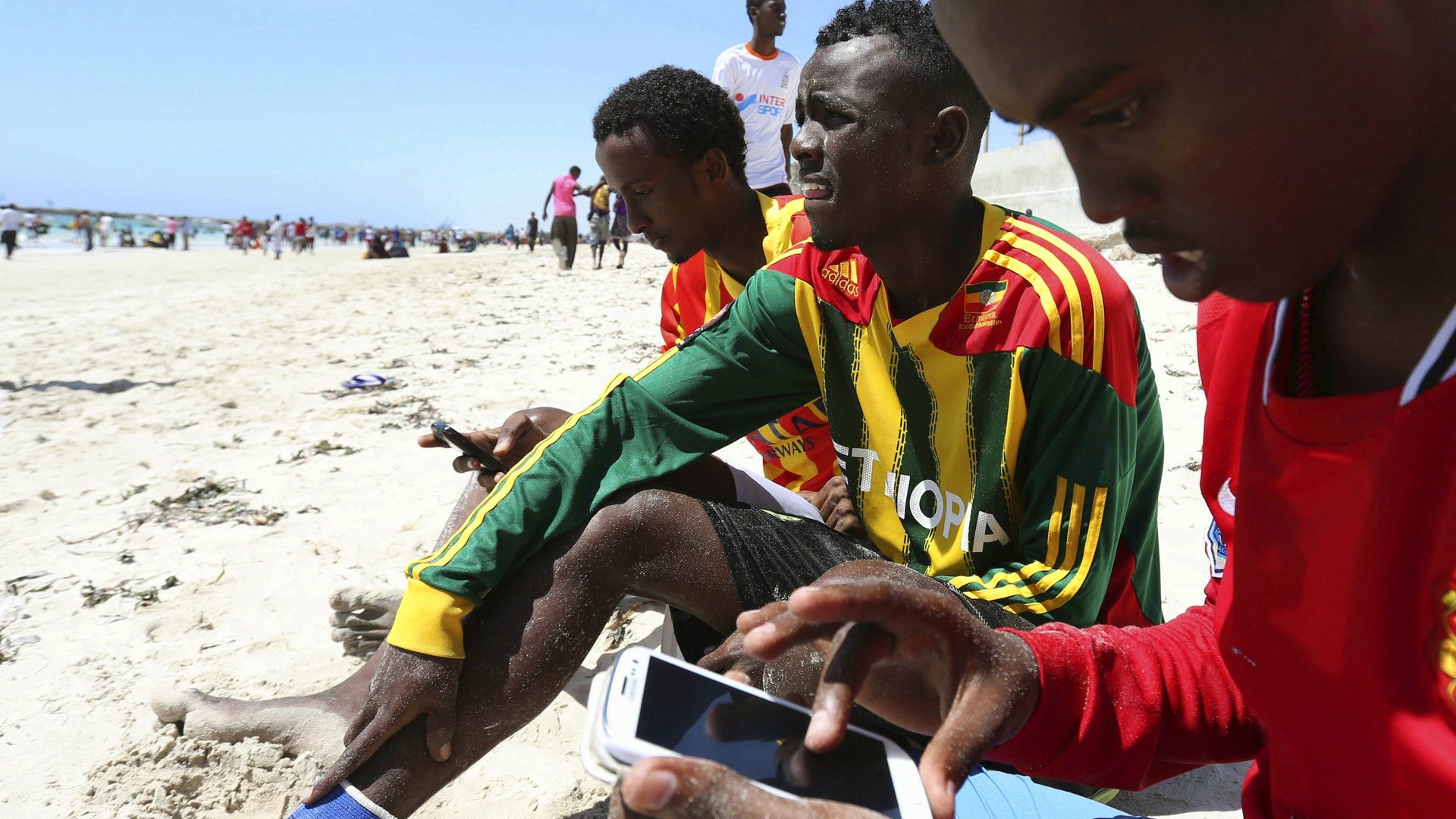Nigeria’s social media bill follows a trend of African governments keeping tabs on civil society
A new Nigerian bill ”for an Act to Prohibit Frivolous Petitions and other Matters Connected Therewith,” proposed by Senator Ibn Na’Allah has received swift ridicule and condemnation from Nigerian bloggers, civil society advocates, and social media enthusiasts. The new bill penalizes false statements made on newspaper, radio, Facebook, Twitter, Instagram, and WhatsApp.


A new Nigerian bill ”for an Act to Prohibit Frivolous Petitions and other Matters Connected Therewith,” proposed by Senator Ibn Na’Allah has received swift ridicule and condemnation from Nigerian bloggers, civil society advocates, and social media enthusiasts. The new bill penalizes false statements made on newspaper, radio, Facebook, Twitter, Instagram, and WhatsApp.
It has prompted a vociferous #NotoSocialMediaBill Twitter campaign and letters to the Nigerian government. Even president Buhari distanced himself from the bill. His spokesman Garba Shehu said “the president won’t assent to any legislation that may be inconsistent with the constitution of Nigeria.” He also reiterated president Buhari believes free speech is central to democratic societies.
The early strong reaction to the Nigerian social media probably means it is less likely to get passed into law in its current form, but it is merely the latest in a trend of increased internet censorship in Sub-Saharan Africa.
The increased government regulation and censorship of internet continent in African countries is problematic for a number of reasons. Obviously the curtailing of the freedom of speech is worthy of condemnation; less immediately evident, however, is the fact that crackdowns on internet freedom in Sub-Saharan Africa is also an impediment to the fight against corruption. Democracy promotion efforts should not ignore the importance of protecting web neutrality and the freedom of expression on the continent—unfortunately, the United States and others with an interest in good governance in Sub-Saharan Africa have not focused their efforts on a free and fair internet.
Perhaps the most sweeping and repressive of internet regulations is conducted by Ethiopia. Ethiopian regulation has increased since the 2005 elections, in which opposition candidates were able to mount an unprecedented (though still minor) challenge to the ruling party’s electoral control. The ruling EPRDF has used a mixture of internet filtering, surveillance, and out-right blocking of content, in conjunction will euphemistic legislation like the Ethiopia’s Mass Media and Freedom of Information Proclamation of 2008 and the Anti-Terrorism Proclaimation of 2009, to limit dissent.
The plight of the Zone 9 bloggers, who were charged with “working with international human rights organizations and taking part in email encryption and digital security training” as well as terrorism, for their blog criticizing the ruling party, is illustrative of the predatory implications of such sweeping legislation. Though the Zone 9 bloggers were eventually released, countless other activists and journalists have been targeted or silenced by the government.
Ethiopian lawmakers were emboldened by the relative impunity with which Zimbabwe’s surveillance regime acted. Zimbabwe’s Post and Telecommunications Act of 2000 “allows the government to monitor e-mail usage and requires ISPs to supply information to government officials when requested.” The government’s oversight was strengthened again by the Interception of Communications Bill of 2006, creating the “Monitoring and Interception of Communications Center to oversee, among other things, all telecommunications and postal services.”
A precedent has been established by which undemocratic regimes feel more comfortable enacting limitations on internet usage. In 2007, a draft ‘Interception of Communications Bill’ in Uganda proposed allowing phone tapping and “other forms of electronic surveillance on people suspected of committing terrorism or crimes against the State without requiring a court order.”
Of the countries considered by Freedom House’s annual Freedom on the Net report, only two were ranked as having ‘free’ internet. Interestingly, the majority of the countries considered had limitations against using the internet or social media to address government corruption. The lack of response from the international community, as the freedom of the internet is curtailed and legislation is misused to persecute the political opposition, has empowered an increasing number of governments to adopt similar, repressive legislation.
The effect of such legislation is to limit the capacity of domestic civil society to reform their governments. As of 2013, 16% of Africans had access to the internet and 67 million had smartphones—these numbers are growing at break-neck speed, however. The internet and increased access to communicative technology could radically alter the political landscape of the continent—however, restrictions on the sort of information that can be disseminated will reduce the effectiveness of citizen ‘watch dogs.’ Transparency International recently released a report finding that 58% of Africans believe corruption has increased in the past year and found that in 18 of 28 countries, the lion’s share of the population said their government is not addressing corruption well.
Calls to eradicate corruption in Sub-Saharan Africa have become a feature of Western delegations to the region—yet there has been little action to ensure that one of the most promising tools against corruption be protected.